by Paige Bjerke
IMS Written Communications Assistant

Mark Adams received his Ph.D. in Polymer Science from the University of Connecticut in 1993. After an 11-year tenure with Dow Chemical, Adams joined Henry Company in various vice president and senior vice president roles. Following his tenure at Henry Company, Adams joined Associated Materials, acting in senior vice president and later executive vice president positions. Since May of 2023, Adams serves as the Chief Operating Officer of HASA Inc., a large water treatment company based in southern California.
IMS News reached out to Adams with five questions about his breadth of professional experience since obtaining his Ph.D., and how his time at UConn shaped it. Adams shows us that with grit, passion, and a strong support system, career growth occurs naturally.
Why did you choose to pursue your Ph.D. in polymer science at UConn?
My plan was to go to medical school after completing a B.S. in Chemistry from UConn. While working on my B.S., I took Physical Chemistry with Professor Andrew Garton. One day about halfway through the semester, he approached me after class and asked about what I was going to do after undergrad. I told him I was planning to go to medical school. He asked if I had ever considered grad school.
He went on to talk about an opportunity to go to the Institute of Materials Science for a Ph.D. in Polymer Science, working with him under a grant from NASA. Curious about the opportunity, I went to visit him at IMS, and the rest is history. I changed direction and worked to earn my Ph.D. on a research project for NASA, studying the degradation of polymeric spacecraft materials in the low earth orbit.
Who were some of the people who helped or inspired you most during your time at UConn, and how did their influence carry over into your professional career?
Obviously, Professor Garton had a huge impact on my academic career. He was incredibly energetic and excited about his research, which was infectious in his research group. When he passed away suddenly, prior to me completing my thesis, I was shocked and somewhat lost. My mentor in research was gone, and I was uncertain about the future and the choices I made. Fortunately, Sam Huang took me on to complete my degree.
Dr. Garton and other faculty at IMS taught me the importance of first principles and how to do research, but Dr. Garton is responsible for teaching me how to apply learning. How to identify a problem, develop root cause, research/develop technology needed, and implement technology solutions. He also helped me develop continuous improvement skills that have become the backbone of my career. Advanced research is interesting and fun but, using that to develop products and solutions is exciting.
A lot of your professional experience is more on the business side rather than in a lab or research setting. How did your Ph.D. and heavy scientific background impact your trajectory for success in so many executive-level corporate roles?
The first few roles early in my career were focused on technology and product development, which heavily leveraged my Ph.D. Successfully translating these efforts into value-creating opportunities required a complex voice of the customer requirements, which was only obtained and validated through observation and communication with end users. It’s at this interface where my unique skills started to develop, and when my career started taking turns from R&D leadership to new business development, sales, commercial leadership, and operations leadership. I have been fortunate to work with exceptional executive leaders that continually challenged and developed me, which has produced a myriad of different and challenging roles. This would not have been possible without the solid foundation I received from IMS and UConn.
What advice do you have for current polymer science students who may be unsure of their career paths?
Figure out your “internal” job description as early as possible. In other words, determine what you like to do most in combination with the skills and experience you have developed. When you figure out what your internal job description is, and you find a role that matches, you will experience dramatically accelerated growth. In my case, that was away from pure and applied research, and more focused on deploying all kinds of chemistry and engineering to develop solutions that rapidly grow businesses. Once you figure that out, job opportunities come faster than will be comfortable.
What are you most proud of having accomplished so far in your current position, and what do you most hope to accomplish going forward?
I am currently the Chief Operations Officer at a specialty chemical company specializing in water treatment. This role is truly the culmination of all my years of experience in multiple functions and companies. I am responsible for Operations at 12 sites, Engineering, Product/Process Development, EH&S, Continuous Improvement, Quality, and Transportation.
My biggest accomplishment so far with this company has been successfully restructuring and realigning our engineering group into a segmented portfolio management approach. We had way too many projects, worked on all of them at once, with too few resources, and no prioritization. Everything was delayed and above budget. Now, we are executing on time and on budget across the board on a full spectrum of projects from large new site design-builds, down to site specific capex projects.
My biggest challenge is developing and implementing automation technology in our packaging plants. We still require too much manual labor in an environment that is ergonomically challenging. Also, working with hazardous and corrosive materials poses unique challenges to metals and circuitry, so we needed to develop materials, machines, and now robots that reliably operate in challenging environments with hazardous chemicals. I guess it’s kind of like my Ph.D. work that analyzed polymers in low earth orbit, also a challenging and unforgiving environment.
IMS News thanks Mark Adams very much for his willingness to share his unique journey. We are excited to see where he takes HASA next.
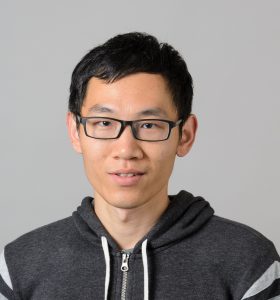
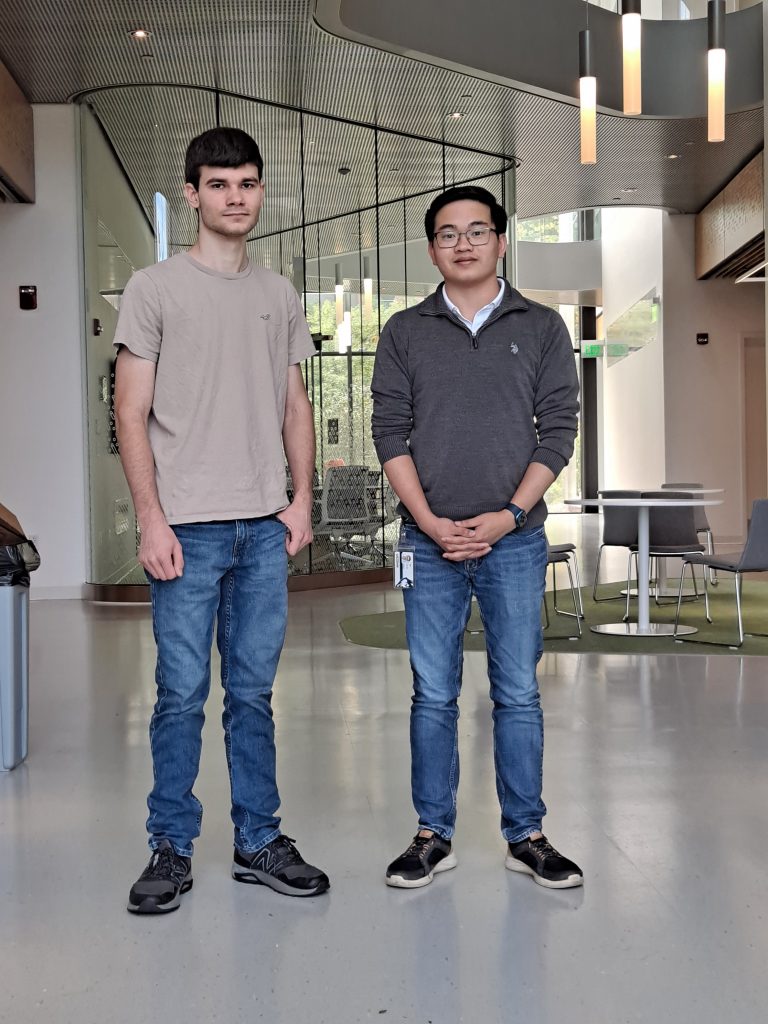
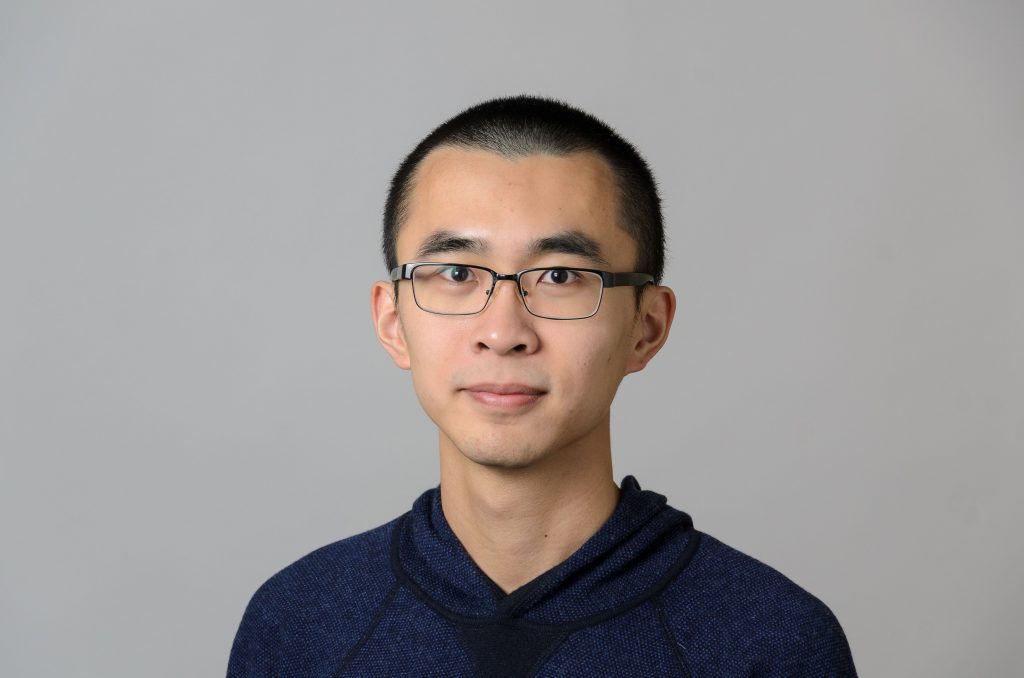
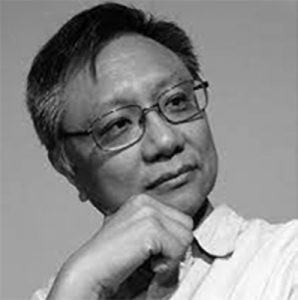
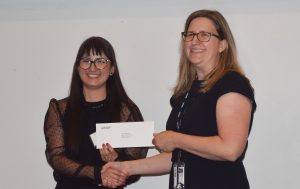
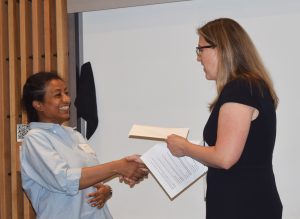
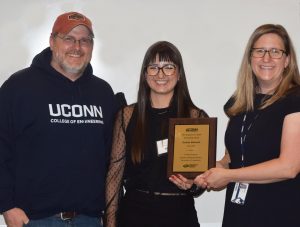
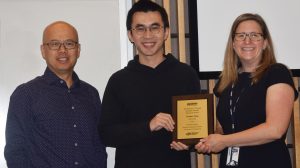

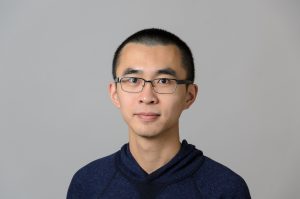
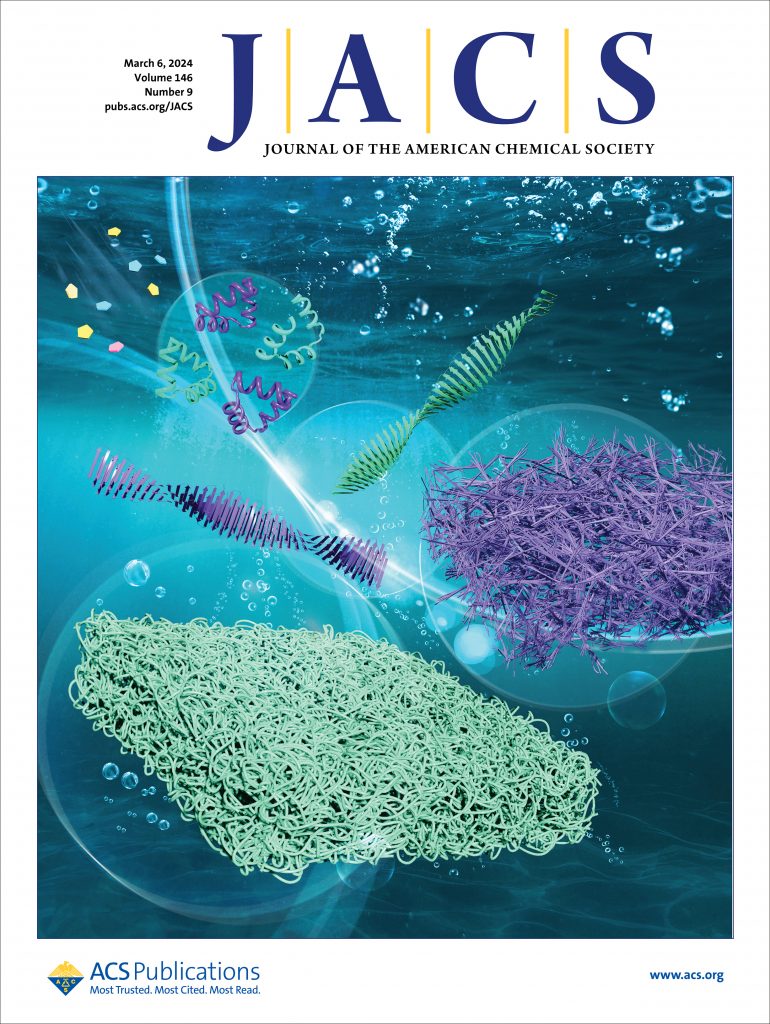 In a collaborative effort, researchers from the University of Connecticut (led by Profs. Yao Lin, VJ Kumar and Xudong Yao) and the University of Illinois at Urbana-Champaign (led by Prof. Jianjun Cheng) have made an advance in the rational design of synthetic polypeptides to develop filament-based hydrogels. The work, conceptualized and realized by the graduate students Tianjian Yang (UConn) and Tianrui Xue (UIUC), has been published in the Journal of the American Chemical Society (JACS) and featured as the cover of the March 6 issue.
In a collaborative effort, researchers from the University of Connecticut (led by Profs. Yao Lin, VJ Kumar and Xudong Yao) and the University of Illinois at Urbana-Champaign (led by Prof. Jianjun Cheng) have made an advance in the rational design of synthetic polypeptides to develop filament-based hydrogels. The work, conceptualized and realized by the graduate students Tianjian Yang (UConn) and Tianrui Xue (UIUC), has been published in the Journal of the American Chemical Society (JACS) and featured as the cover of the March 6 issue.